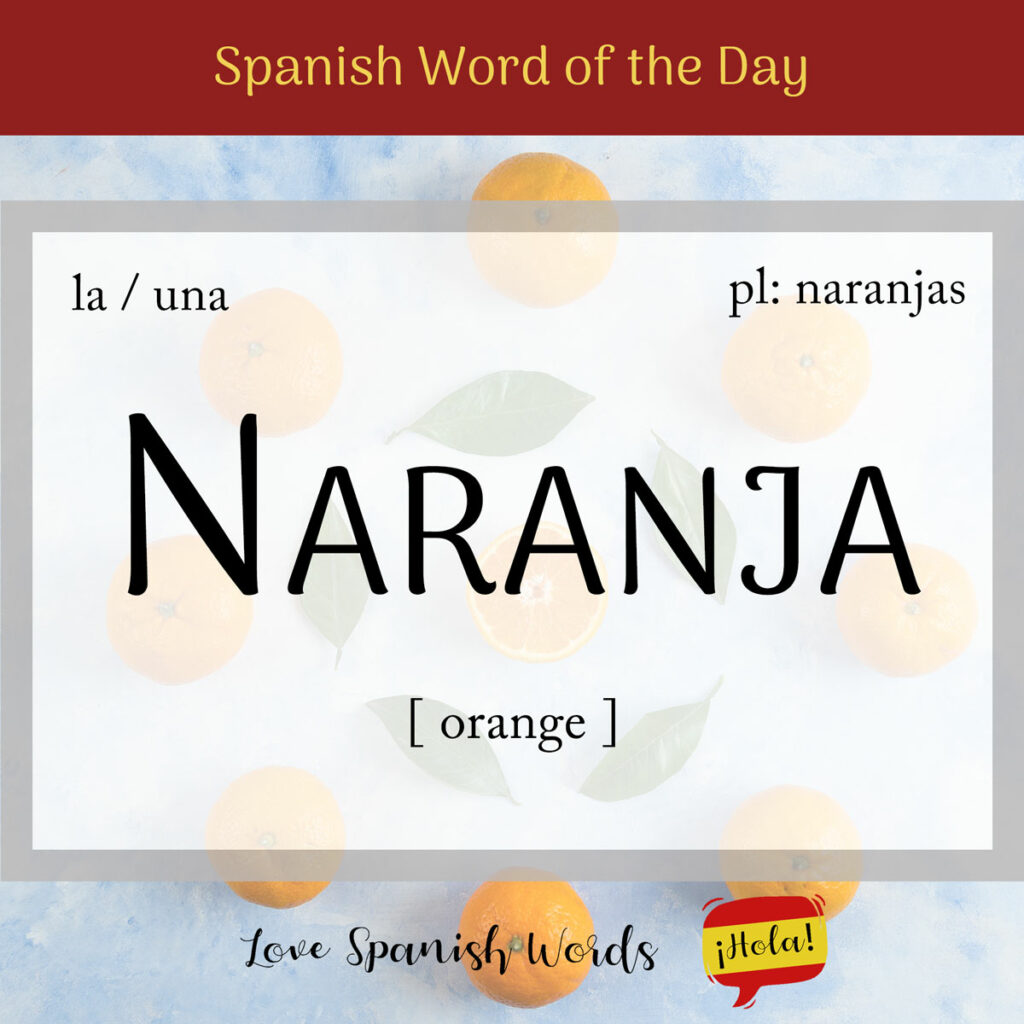The second colour in the rainbow is orange. Orange in Spanish is naranja and the word originally comes from the Sanskrit nāraṅga (orange tree) and taken from the Arabic نَارَنْج (nāranj) meaning (bitter / sour orange).
As you have probably guessed by now, the word naranja is also used as the word for the fruit of the same colour, the orange.
Latin American pronunciation
European pronunciation

When it is used to describe the colour orange, naranja is an invariable adjective, which means its form does not change according to the gender or number of the noun it describes.
As for the fruit naranja, it is a feminine noun which takes the following definite and indefinite articles:
- la naranja = the orange
- las naranjas = the oranges
- una naranja = an orange
- unas naranjas = some oranges
Note that naranja can also be a masculine noun when it describes the colour of paint, a pigment, etc.
Los pétalos de las flores son naranja brillante o amarillos.
The petals of the flowers are bright orange or yellow.

You may come across a very similar word which also means orange and is used as an adjective: anaranjado.
There is a variety of different types of orange fruit used for eating and juicing. Below are just a few of them:
- naranja amarga/cajel/zajarí = Seville orange
- naranja navel = navel orange
- naranja sanguina / de sangre = blood orange
- naranja valenciana = Valencian orange
- naranja clementina = clementine
Las mejores naranjas para hacer zumo son las blancas de Valencia.
The best oranges for making juice are the white ones from Valencia.

Useful idiomatic expressions using naranja:
¡Naranjas de la China!
Literal translation: Oranges from China!
English meaning: No way!
Encontrar su media naranja
Literal translation: to find your half an orange
English meaning: to find your other half or your soulmate
Did you know that…?
The tree on which the orange fruit grows is called el naranjo.

